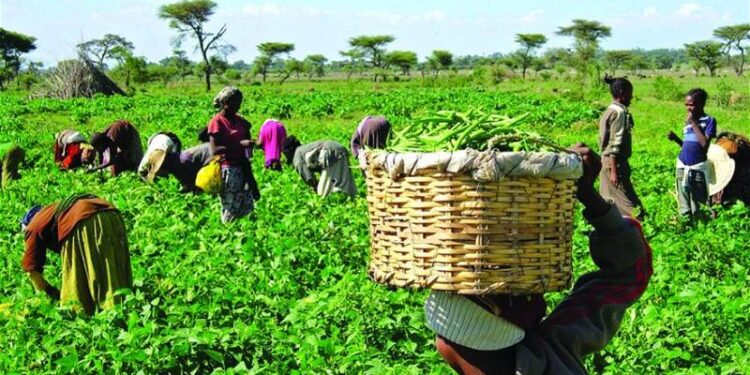Farmers and food traders in Nigeria’s South-South region have raised concerns over the continued high cost of food despite the ongoing harvest season. In a survey conducted across Akwa Ibom, Rivers, and Cross River states, many stakeholders expressed frustration that food prices have not seen the expected significant drop, a contrast to the previous year’s harvest season.
In Port Harcourt, Rivers State, food vendor Mrs. Benedicta Amadi noted that the high cost of transportation has prevented consumers from benefiting from the harvest season. She highlighted the sharp increase in food prices, with a sizable tuber of yam now costing between N4,000 and N6,000, compared to N800 during the 2023 harvest season. Amadi also mentioned that perishable items like tomatoes and pepper have seen drastic price increases, with a basket of pepper rising from N1,500 to almost N16,000.
Similarly, cassava farmer Mr. Godwin Akandu reported that only minimal price reductions have been observed for products like garri and vegetables. He attributed the limited price drop to premature harvesting by farmers trying to mitigate potential losses from flooding. Akandu, who also serves as the President of the Etche Farmers Cooperative Union, called on the state government to collaborate more closely with local farmers to boost food production and address rising costs.
In Akwa Ibom, market vendor Mrs. Happiness Oboh shared that the changes in food prices during this harvest season have been insignificant. For instance, the price of garri slightly dropped from N120,000 in May to N105,000, but the price of a tuber of yam has surged from N10,000 to N16,000. Oboh also cited multiple market unions as a factor contributing to the persistent high prices.
The Chairman of the Akwa Ibom Chapter of the All Farmers Association of Nigeria (AFAN), Mr. Bassey Inwang, listed several challenges contributing to the high food costs, including the rising cost of fuel, herders’ encroachment, and limited farmland. He emphasized the need for timely distribution of farm inputs, loans, and grants to farmers, as well as the adoption of mechanized farming practices to ensure larger harvests and food security.
In Cross River State, trader Mr. Mubarak Ibrahim reported a slight decrease in the cost of some staple foods, such as rice and beans. However, he noted that the price reductions have been minimal, and prices for other items, like yellow maize, remain high. Meanwhile, tomato dealer Mr. Ibrahim Samsudeen observed that while the price of Cameroonian tomatoes has decreased, the cost of Nigerian tomatoes continues to be high.
Cross River’s Commissioner for Agriculture and Irrigation Development, Mr. Johnson Ebokpo, announced that the state government has procured 108 medium tractors to support cooperative societies in farming activities. He added that the cultivation of 50,000 hectares of rice in Ogoja and 90 hectares of cassava in 10 communities is underway, as part of efforts to boost food production and reduce costs by the 2025 harvest season.
























